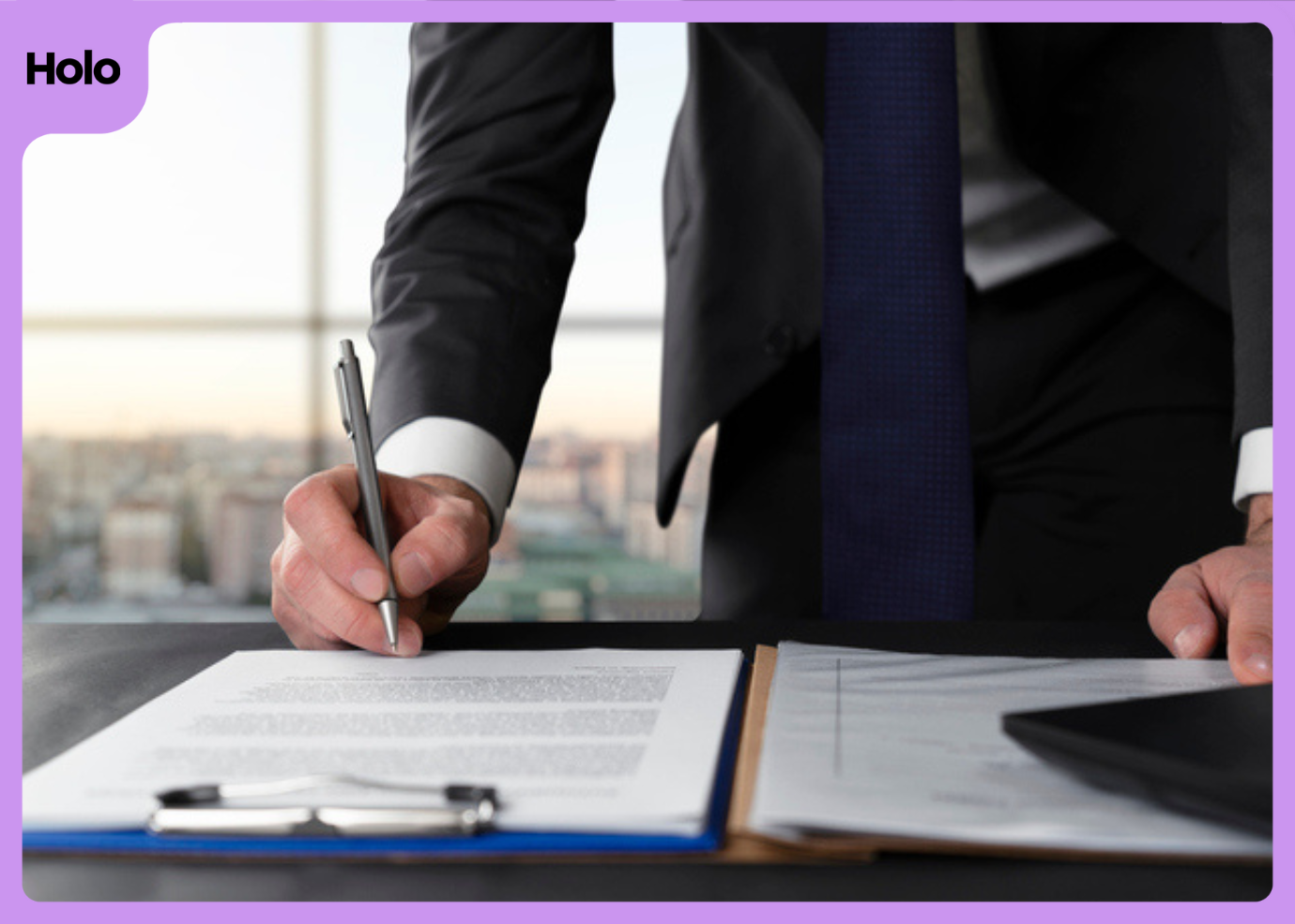
Thinking about buying a home? We've got you covered
Get expert advice today
Understanding the home loan process in the UAE can be a bit overwhelming, especially for expats who may not be familiar with the local mortgage system. The good news is that getting a mortgage in Dubai has become much simpler in recent years, with clearer processes and more support available.
In this guide, we'll break down the key steps and things to consider when applying for a mortgage in Dubai as an expat. Whether you're new to the process or just need a little clarity, this will help you understand what to expect and how to get started.
Understanding the Dubai Market
Dubai's real estate market has seen significant growth and transformation over the years, making it a vibrant and competitive environment. Factors like location, property type, and market trends play a vital role in property pricing. Expats must be aware of the emirate's regulations, which can differ from other countries. For instance, Dubai allows foreign investors to buy properties in designated freehold areas.
Additionally, the market is influenced by international economic factors, which can affect mortgage rates and property values. Understanding these dynamics can help expats make informed decisions about their home loans in the UAE. With the right insights, expats can identify opportunities to make sound investments that could offer long-term benefits.
Key Terms and Conditions Of A Mortgage in UAE
When exploring a new mortgage, it's essential to understand the key terms and conditions that accompany these financial agreements.
- Mortgage terms: In Dubai typically range from 15 to 25 years, with interest rates that may be either fixed or variable.
- Down payment: It's crucial to consider down payment requirements, generally around 20% for expatriates, although this can vary depending on the property and the lender.
- Debt burden ratio: Expatriates should be aware of the debt burden ratio, which limits the borrower's monthly debt payments to a certain percentage of their monthly income, this can be easily found online by using a mortgage calculator, providing an estimate of how much you will pay monthly and the amount that you could get for the mortgage based on your salary. Your total monthly debt payments, including the mortgage, cannot exceed 50% of your monthly income.
- Loan-to-Value (LTV) Ratio: The LTV ratio for expats is generally capped at 80%, meaning the mortgage covers up to 80% of the property's value.
- Early repayment fees: Paying off your mortgage ahead of schedule may incur additional charges.
Being well-informed allows expatriates to navigate the complexities of obtaining a mortgage in the UAE, ensuring they choose the mortgage plan best suited to their needs and financial situation.
Types of Property Mortgages in the UAE
Choosing the right mortgage is key to managing your repayments smoothly. Here are the main types of home loans available in the UAE:
- Fixed-Rate Mortgage
With a fixed-rate mortgage, the interest rate is agreed upon at the start of the loan and remains the same throughout the loan term. This option is ideal for those seeking predictability, as the rate is unaffected by inflation or market changes.
Example: If you take out a home loan with a fixed 4% interest rate for 9 years, the rate will stay consistent for the entire period, regardless of market fluctuations. - Variable-Rate Mortgage
Unlike fixed rates, a variable-rate mortgage has an interest rate that changes based on inflation and the Emirates Interbank Offered Rate (EIBOR). While this can lead to lower payments when rates drop, it can also increase your repayments if rates rise. It's suitable for those who can manage potential fluctuations in costs.
Example: If you buy a property with a variable mortgage, your interest rate might change over time depending on market conditions. - Other Types of Mortgages
- Remortgage: Refinancing an existing loan to get better terms or rates.
- Offset Mortgage: Linking your mortgage to a savings account, where your savings help reduce the interest on your loan.
Understanding these options will help you choose the mortgage that best fits your needs and financial goals.
Eligibility Criteria for Expats
To secure a mortgage in Dubai as an expat, it's important to meet specific eligibility criteria. Here are the key requirements:
1. Residency and Employment
To secure a mortgage, expats must have a valid residency visa and a stable employment record in the UAE. This shows lenders that you have a reliable income source.
2. Minimum Income Requirement
Most banks require a minimum monthly income of AED 15,000, though the exact amount can vary depending on the lender and the value of the property you want to buy.
3. Credit History
Having a good credit history is essential. Lenders check your repayment habits to ensure you can manage monthly mortgage payments responsibly.
4. Age Limits
Banks usually set an age range for applicants: you must be at least 21 years old to apply, and the mortgage must be repaid by the time you reach 65 years (or sometimes 70, depending on the lender).
By understanding these criteria, expats can better prepare their applications and increase their chances of approval. Working with a mortgage manager guarantees you tailored advice, ensuring that you meet the necessary requirements for a home loan in the UAE.
Required Documentation Checklist For Expats
When applying for a home loan for expats in the UAE, having the right documentation is crucial. A well-prepared checklist ensures a smoother application process:
1. Proof of Identity
- Valid passport
- UAE residency visa
2. Employment Verification
- Salary certificate from your employer
- Pay slips from the last 3 to 6 months
3. Bank Statements
- Bank statements for the past 3 to 6 months to show financial stability.
4. Property Documents
- A copy of the sales agreement for the property you are purchasing.
5. Additional Income and Liabilities
- Documents proving any additional income sources (if applicable).
- Details of existing liabilities to help lenders assess your debt burden ratio.
Having these documents ready can expedite the mortgage approval process. Using Holo can help you manage and submit these documents efficiently, ensuring they meet all lender requirements and increase their chances of securing a favourable mortgage deal in Dubai.
Tips for Successful Applications
With the right strategies, applicants can enhance their chances of success. Begin by ensuring all required documentation is complete and accurate; any discrepancies can delay the process.
It's beneficial to maintain a good credit score by managing existing debts and making timely payments, as a strong credit history increases lender confidence.
Understanding the lender's specific criteria and aligning your application to meet these can also be advantageous. Seeking pre-approval is a wise step, as it provides clarity on budget limits and increases credibility with sellers.
Engaging with a mortgage advisor or using digital platforms like Holo can offer personalised insights and streamline the application process. Such resources can help expats navigate the complexities of the mortgage landscape, offering tailored advice to optimise their applications.
By being well-prepared and informed, you can increase your chances of obtaining favourable mortgage terms.
Comparing UAE Lenders For A Home Loan
Selecting the right mortgage lender is one of the most important steps for expats looking to buy property in the UAE. With several major banks offering mortgage solutions tailored to expats, it's essential to compare their terms, benefits, and features to make an informed decision.
Top Mortgage Providers for Expats
- Emirates NBD: Known for its competitive interest rates and flexible terms, making it a popular choice for first-time buyers.
- HSBC: Offers global banking services, which are ideal for expats with international financial commitments.
- Standard Chartered: Provides bespoke mortgage solutions, often with lower down payment requirements, making it attractive for those seeking a smaller upfront investment.
- Abu Dhabi Islamic Bank (ADIB) and Dubai Islamic Bank: Cater to those looking for Sharia-compliant mortgages, offering Islamic financing solutions in line with UAE regulations.
Key Factors to Consider When Choosing a Lender
When comparing lenders, keep these factors in mind:
- Interest Rates: Decide whether a fixed-rate or variable-rate mortgage aligns better with your financial situation and risk appetite.
- Repayment Flexibility: Look for options such as early repayments or refinancing, and check for any associated fees.
- Customer Service: A lender with clear communication and efficient support can make the process much smoother.
- Additional Features: Some lenders offer convenient tools like online account management or pre-approval services, which can save time and simplify the application process.
By carefully comparing lenders, you can find a mortgage solution that suits your financial goals and lifestyle. Holo can simplify this process by providing expert insights, side-by-side comparisons, and tailored recommendations, helping you secure the most advantageous mortgage option in Dubai.
Expert Advice, Tools, and Market Insights for Expats
Buying a home is a big step, however by being informed and making sure that you understand all the requirements you could make the process easier. Here are three key resources that can simplify the journey to securing a home loan:
- Useful Tools and Calculators: Mortgage and affordability calculators allow expats to simulate financial scenarios, estimate monthly repayments, and assess borrowing capacity. These tools make it easier to plan budgets, evaluate mortgage terms, and explore savings opportunities from early repayments or refinancing.
- Staying Updated with Market Trends: Understanding the ever-changing UAE property market is essential. Monitoring interest rates, property values, and lending conditions can help expats time their purchases strategically. Platforms that provide real-time updates and expert insights empower expats to stay informed and make proactive financial decisions.
By combining expert advice, practical tools, and market insights, as an expat you can confidently navigate the complexities of securing a mortgage in the UAE.
Related articles

Mortgage Registration in Dubai: Process, Requirements And Fees Explained

Buying vs Renting in the UAE: Which One Is Better for You?


